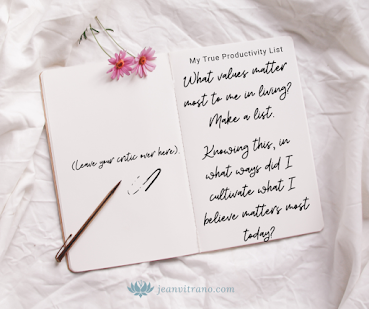This is the last Mindful Pause of 2022! One of the big realizations I had in reviewing my past year is that I have a lot more space in my life. A number of factors go into that. My kids are no longer little and don't need me in the same kinds of ways they used to. I no longer have my massage therapy practice and though I lead more groups, it leaves a handful of open hours in the week. The pandemic also made a seismic shift in reducing the pull to run around at the pace I used to. This was one of the upsides of it all -- it occurred to so many of us that we just don't need to be on the go so much. Thank goodness. Something feels simpler, but is it actually doing less that caused this? I'm beginning to understand that it might not be a matter of how much is in my schedule, rather how much is in my mind (and what is in my mind).
Space, quiet, and time are available right here, right now. When we choose to stay in the present moment more often, we find that the space we tend to be longing for is already here. We don't have to wait until we get on vacation, or get to a spa, to feel like we have time, space, and a chance at inner quiet. How do I know that to be true? All I need to do is take a period of meditation to see how it works.
Let's say we are practicing 15 minutes of meditation. We're following our breath and continually letting go of thoughts once we realize we have gotten swept up into them. What gradually happens is that our mind begins to rest from all its usual busyness. We start to find micro-moments of space, of quiet, between our thoughts. It could just be seconds here and there that add up. It's not about stopping our thoughts altogether (if you can you probably wouldn't be reading this email and I might not be writing it), rather we rest a bit more as we stop reacting so quickly to every thought, feeling, and sensation that arises. This is what we find when we are committed to our practice.
Let's say we take the same 15 minutes of intended practice and we start writing our to do lists, planning dinner, replaying yesterday's conversation, with one thought leading to another, and we don't try to come back to the present. The same 15 minute sit, even though we became still and verbally quiet, doesn't feel the same. We feel busy and as if we did even more in our day. In fact, we did. We thought intensely for 15 minutes which is no different than physically running around. We might as well have run around and gotten things done! Or suppose we are driving a car and while we drive we are also planning, replaying, analyzing, etc. We are expending more effort, constricting the spaciousness of the moment by filling our minds at the same time. Of course we feel there is no time. Of course we feel tired.
So how do we create more spaciousness in our lives? We let our mind rest on what we are doing. If we are following our breath and being still in meditation, we just do that and when our mind wanders, we start again without judgement. Even just one moment in a 15 minute sit where we remember to let go and breathe makes a difference. It's not just in meditation. Meditation is simply the practice for being present in the rest of life. If we are making dinner, we just make dinner. If we are working, we just work on the task at hand. If we are listening to someone, we just listen. If we live like this, there is space. We don't have to run to some island or some retreat on a mountain. Don't get me wrong, tropical islands and mountain retreats are very nice, but they're not the primary answer to feeling relaxed and spacious in life.
So if you want more time. More ease. More quiet. More space in your life in 2023. Let your mind rest in the present. Driving from here to there, stop planning and see the blue sky. Putting the dishes away, stop worrying about the what-ifs and enjoy making space. Taking a shower, let go of that conversation that already happened and enjoy the warm water. Space is right here. No matter how full our schedule, we can simply do what we do as we do it and not rush to get to the next thing.
I'm aware that I am writing this at what often feels like a very busy time of the year. But that makes it even more clear. We always get to choose to create inner space and quiet.
Wishing a Happy Hanukkah and Merry Christmas to all of you who are celebrating this week. May your holidays feel spacious, light, and joyful.
🙏🌻
Jean
%20copy%203.png)
.png)
%20copy%209.47.49%20PM.png)
.png)
.png)
.png)


.png)




%20copy.png)
.png)

